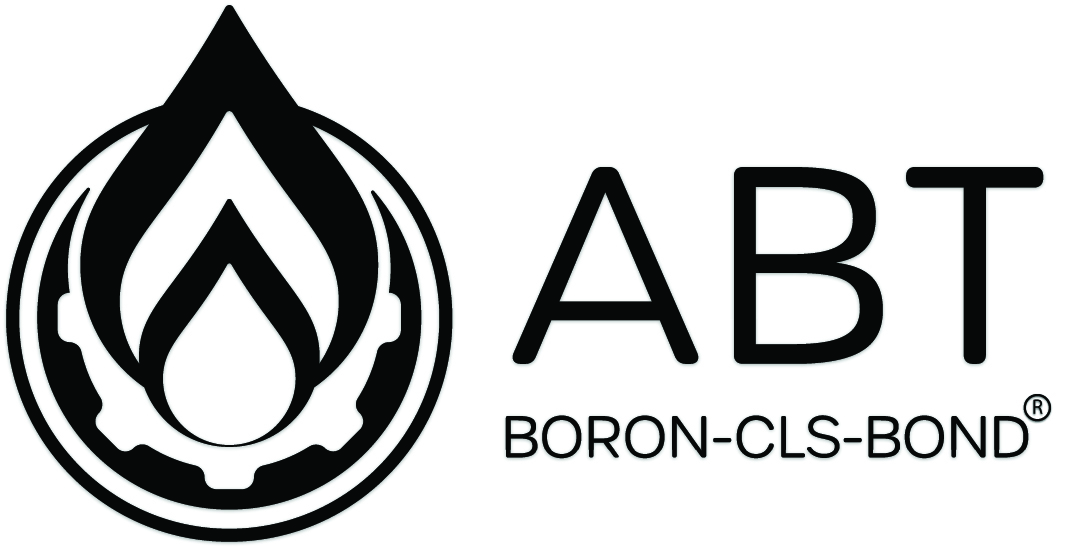80% of Traders Boost Their Profits Using Innovative Strategies
- 80% of Traders Boost Their Profits Using Innovative Strategies
- Understanding Trading Platforms
- Exploring Market Analysis Techniques
- Technical Analysis Tools
- Fundamental Analysis Factors
- Developing a Trading Strategy
- Setting Goals
- Backtesting Strategies
- Risk Management Techniques
- Emotional Control in Trading
- Risk-Reward Ratio
- Leveraging Advanced Tools and Technology
- AI in Trading
- Mobile Trading Applications
- Staying Informed with Market Trends
- Economic Indicators
- The Impact of Global Events
- Continuous Learning and Adaptation
- Seeking Feedback
- Participating in Webinars and Workshops
80% of Traders Boost Their Profits Using Innovative Strategies
In the rapidly evolving world of digital finance and trading, many individuals are looking for effective ways to enhance their profitability. One of the most prominent methods is through advanced trading strategies. By using innovative approaches, traders are not only increasing their chances of success but also maximizing their returns. It is essential to understand the fundamental principles behind these strategies, particularly adopting a more systematic approach, which can yield impressive results. The digital landscape has given rise to numerous platforms, enabling traders to make informed decisions based on technical analysis and market trends.
The dynamic environment of online trading allows for various assets, including stocks, commodities, and currencies to be traded seamlessly. Within this ecosystem, quotex trading has gained popularity for its unique features and user-friendly interface. Many traders are beginning to realize that utilizing advanced strategies can significantly improve their financial outcomes. These strategies often incorporate a blend of technical analysis, risk management, and psychological resilience, which are critical for successful trading.
Moreover, the ongoing flux of market conditions requires traders to stay ahead of the curve by embracing innovative techniques. By researching and fine-tuning their trading habits, traders can optimize their performance. Continuous learning and adaptation are vital skills that define successful traders in such a competitive landscape. As we delve deeper into this topic, we will explore various strategies that can empower traders and take their profits to new heights.
In this article, we will cover essential strategies, analytical tools, and the mindset critical for success in the trading arena. By the end of this piece, readers will have a comprehensive understanding of how to enhance their profits through innovative practices. Let’s embark on this journey toward mastering the art of trading.
Understanding Trading Platforms
The choice of a trading platform plays a crucial role in shaping a trader’s experience. With various options available, it’s important to select a platform that caters to individual needs and preferences. Quotex trading, for example, offers an intuitive interface, which is especially beneficial for beginners. Users are encouraged to explore the various features and tools provided by the platform to make informed decisions.
Furthermore, traders should look for platforms that provide real-time data, advanced charting tools, and diverse asset classes. These features enable traders to analyze market trends effectively and make timely decisions. The ability to execute trades swiftly is also essential, as market conditions can change rapidly. A platform that supports high-speed trading can give users a competitive edge.
| Real-time Data | Helps traders make informed decisions with up-to-date information. |
| User-friendly Interface | Aids beginners in understanding trading functionalities with ease. |
| Diverse Asset Options | Allows traders to explore various markets and diversify their investments. |
In conclusion, selecting the right trading platform is foundational for descending into the world of trading. As traders become more familiar with their chosen platforms, they can leverage innovative strategies to enhance their performance and profitability. Moving forward, understanding market analytics is key for unlocking trading success.
Exploring Market Analysis Techniques
Successful trading heavily relies on thorough market analysis. Traders often use a combination of technical and fundamental analysis to evaluate market conditions. Technical analysis focuses on historical price movements, allowing traders to identify trends and patterns. By studying charts and indicators, traders can forecast potential price movements based on past performances.
On the other hand, fundamental analysis examines external factors that influence market prices. This includes economic indicators, news events, and even geopolitical developments. By combining these two analytical approaches, traders can develop a more comprehensive understanding of the markets and improve their decision-making process.
Technical Analysis Tools
There are numerous tools available for traders looking to utilize technical analysis. Indicators such as Moving Averages, Relative Strength Index (RSI), and Bollinger Bands can provide valuable insights into market trends. By familiarizing themselves with these tools, traders can enhance their ability to predict market movements more accurately.
Fundamental Analysis Factors
Understanding the impact of economic indicators is vital for any trader. Factors such as interest rates, employment data, and inflation rates can significantly affect market prices. By keeping track of these economic signals, traders can make more informed decisions and adjust their strategies accordingly.
Developing a Trading Strategy
A well-structured trading strategy is essential for long-term success in the market. Successful traders often develop strategies based on risk tolerance, investment goals, and market analysis. The key is to create a plan that is both flexible and disciplined, allowing traders to adapt to changing market conditions while sticking to their core principles.
One effective strategy involves setting clear entry and exit points based on market analysis. This can help traders manage their risk and make more informed decisions. Additionally, implementing strict risk management measures can protect traders from significant losses while maximizing potential gains.
Setting Goals
Establishing specific trading goals helps traders maintain focus and direction. Goals may include achieving a certain percentage of return on investment or improving trading discipline over time. By setting measurable objectives, traders can evaluate their performance and make necessary adjustments to their strategies.
Backtesting Strategies
Backtesting is a crucial step in strategy development. It involves applying a trading strategy to historical data to see how it would have performed in the past. This can provide valuable insights into the effectiveness of a strategy and help traders refine their approaches before applying them in live markets.
Risk Management Techniques
Effective risk management is imperative in trading. Traders must be prepared to face uncertainties and potential losses, and implementing risk management techniques can shield them from significant financial damage. This involves calculating the risk-to-reward ratio for each trade and determining acceptable loss thresholds.
Utilizing stop-loss orders is one common method of risk management that helps mitigate losses. By setting a predefined exit point if a trade moves against them, traders can protect their capital while maintaining their overall strategy.
- Utilizing Stop-Loss Orders: Predefined exit points help in limiting losses.
- Diversifying Investments: Spreading investments across various assets reduces potential risks.
- Position Sizing: Appropriately sizing positions based on account balance prevents excessive loss.
Emotional Control in Trading
Maintaining emotional control is an often-overlooked aspect of trading. Fear and greed can cloud judgment and lead to impulsive decisions. Developing a strong trading psychology can be just as crucial as mastering the technical aspects of trading. Traders should focus on maintaining discipline and sticking to their trading plan.
Risk-Reward Ratio
The risk-reward ratio is a critical component of a trader’s strategy. This metric assesses the potential profit versus the potential loss of a trade. A favorable risk-reward ratio ensures that the expected gains outweigh the possible losses, making it a cornerstone of effective trading.
Leveraging Advanced Tools and Technology
In today’s digital age, traders have access to various tools and technologies that can significantly enhance performance. These tools range from sophisticated charting software to AI-driven trading algorithms. Leveraging these technologies can provide traders with valuable insights, save time, and improve accuracy.
Additionally, automated trading platforms can help users execute trades based on predefined criteria, eliminating human errors and emotions from the equation. This technology allows traders to capitalize on market opportunities as they arise, maximizing their profits.
AI in Trading
Artificial Intelligence (AI) is becoming increasingly prevalent in trading. AI algorithms can analyze vast amounts of data much faster than humans, identifying trends and making predictions with high accuracy. By integrating AI into trading strategies, traders can stay ahead of the market and make more informed decisions.
Mobile Trading Applications
Mobile trading applications empower traders to remain connected to the markets at all times. With these apps, users can monitor their trades, execute orders, and receive market updates on the go. This flexibility allows traders to make quick decisions and capitalize on time-sensitive opportunities.
Staying Informed with Market Trends
Keeping abreast of market trends is crucial in the trading landscape. Market conditions can shift rapidly, influenced by various factors such as economic reports, news events, or geopolitical issues. By staying informed, traders can adjust their strategies accordingly and optimize their trading performance.
Subscribing to financial news outlets, following economic calendars, and engaging with online trading communities can help traders stay updated with the latest developments. Engaging in continuous education and networking with fellow traders can also enhance knowledge and provide insights into effective strategies.
Economic Indicators
Monitoring key economic indicators can help traders make more informed decisions. Metrics such as Gross Domestic Product (GDP), consumer sentiment, and housing market reports can influence market movements. By keeping track of these indicators, traders can anticipate price changes and adjust their approach accordingly.
The Impact of Global Events
Global events can dramatically affect financial markets. Factors such as political changes, natural disasters, and international conflicts can create volatility and present both challenges and opportunities for traders. Understanding these dynamics is critical for developing effective trading strategies.
Continuous Learning and Adaptation
The trading landscape is always evolving, making it imperative for traders to commit to continuous learning. By staying open to new techniques, strategies, and tools, traders can cultivate a mindset conducive to growth and improvement. Educating themselves about market behaviors and trading strategies can enhance their performance in the long run.
Moreover, analyzing both successes and failures can provide valuable lessons. This assessment will aid traders in understanding their strengths and weaknesses, further refining their approach to trading. Adaptability is a crucial trait that distinguishes successful traders from their less successful counterparts.
Seeking Feedback
Regularly seeking feedback from peers or mentors can significantly contribute to a trader’s development. Constructive criticism helps identify areas for improvement and encourages ongoing growth. Engaging with a community of traders can provide new perspectives and insights.
Participating in Webinars and Workshops
Participating in webinars or workshops can be a great way to upgrade one’s trading skills. These platforms often feature experienced traders and experts who share their knowledge and best practices. This participatory approach enhances the learning experience and fosters connections within the trading community.
Through this detailed exploration of advanced trading strategies, tools, and techniques, traders can equip themselves with the knowledge required to enhance their trading performance. The combination of the right mindset, effective analysis, and innovative strategies offers a pathway to increased profitability. Embracing these aspects of trading can lead to significant rewards in the digital finance world.






